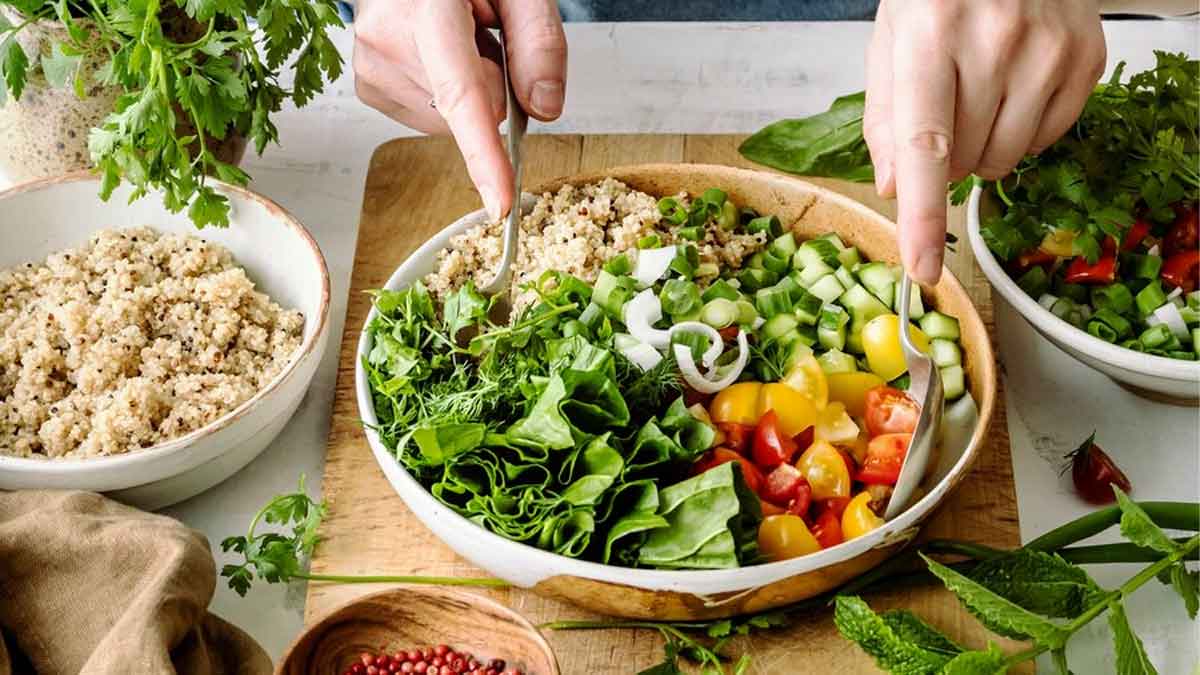
In recent years, the urge to convert to veganism or vegetarianism has grown, driven by concerns for personal health, environmental sustainability, and animal welfare. Experts and those who have made the switch to a plant-based diet hail its numerous benefits. However, if you have been a meat eater all your life, making this transition could seem tough.
Table of Content:-
Talking to OnlyMyHealth’s team, K Sowmya, Senior Dietician, Apollo Hospitals, Secunderabad, shared that it's important to approach the transition in a thoughtful and health-conscious manner. She provided a guide to help you make the shift to a plant-based lifestyle while ensuring you meet your nutritional needs and maintain your health.

What Is A Plant-Based Diet?
Before diving into the transition, it's essential to understand what a plant-based diet means. Sowmya described, “Plant-based diets may not only include fruits, vegetables and grains but also minimally processed on unprocessed foods.” The main goal is to avoid animal products.
The Harvard Medical School shared that following a plant-based diet doesn’t necessarily mean that you never eat meat or dairy. Instead, it means that you prioritise foods from plant sources. The organisation also mentioned some health benefits of converting to a plant-based diet:
- Reduced risk of heart disease, metabolic syndrome and diabetes
- Anti-cancer properties
- Lower risk of depression
- Decreased risk of frailty
- Blood pressure regulation
Also Read: Expert Suggests Plant-Based Diet Can Help You Keep Your Allergies At Bay
Converting To A Plant-Based Diet
“Quitting meat may be difficult in the initial phase of adapting this type of diet pattern,” elucidated Sowmya. If you are one such individual, the good news for you is that the best way to switch to a plant-based diet is gradually.
Sowmya added, “Any special diet, be it vegetarian or vegan, can cause micronutrient deficiencies if not planned well. So proper planning and understanding different food groups is very crucial.”
She stated that while plant-based diets can provide all the essential nutrients your body needs, it's important to pay attention to certain nutrients that may require special consideration:
- Protein: Include sources of plant-based protein such as beans, lentils, tofu, tempeh, quinoa, nuts, and seeds into your meals.
- Iron: Include iron-rich foods like leafy greens, legumes, fortified cereals, and nuts.
- Calcium: Opt for calcium-fortified plant milk, tofu, leafy greens, almonds, and sesame seeds to support bone health.
- Vitamin B12: Consider taking a B12 supplement or consuming fortified foods like plant-based milk, breakfast cereals, and nutritional yeast to prevent deficiency.
- Omega-3 fatty acids: Include sources of ALA (alpha-linolenic acid) such as flaxseeds, chia seeds, hemp seeds, and walnuts.
Also Read: Vitamin B12 Deficiency: Food Sources For Non-Vegetarians, Pure Vegetarians And Vegans

Takeaway
Sowmya shared a crucial tip, “Pay attention to the labelling when buying food. Understanding these food labels can help you check if the meal you are purchasing is plant-based or not. This can help follow any diet in the right manner.” Moreover, while plant-based foods are generally lower in calories than animal products, it's still important to pay attention to portion sizes, especially if weight management is a goal.
Sowmya concluded that if you plan well, then a plant-based diet can help you achieve weight loss, lead to a reduction in fat mass, inflammation, and pain, get better skin, and prevent asthma and allergic diseases. However, if you experience a lack of energy while on a plant-based diet, consult a doctor or a dietician to check and correct nutritional deficiencies.
Also watch this video
How we keep this article up to date:
We work with experts and keep a close eye on the latest in health and wellness. Whenever there is a new research or helpful information, we update our articles with accurate and useful advice.
Current Version